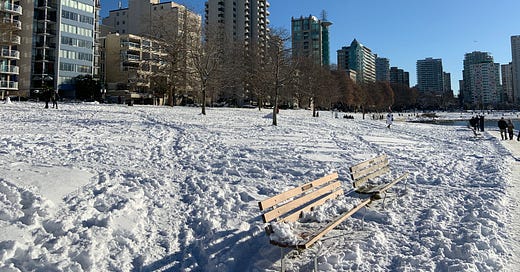Each New Year comes with its usual traditions and in British Columbia that is the release of assessed property prices for 2021. Every year the government releases the data on which property taxes are based. The short of it is that on average home prices since Covid started in early 2020 prices have increased by 34%. That’s quite the number in particular if you realize that the province and in particular the Vancouver metropolitan area already was one of priciest pieces of land on the planet.
A quick review on Facebook made it clear that homeowners were ecstatic and probably went straight to whatever system they use to calculate their new net worth. Of course I could not resist a quick back of the envelope calculation, but I do have a more nuanced view on all of this as it is not particularly good news.
Firstly, what is propelling the market ? The usual suspects of course, such as low interest rates, lax monetary policies that supported the Canadian consumer through the pandemic, the new way of looking at homes not only as a place to live but as a place to work and the almost never-ending influx of wealthier immigrants who flee political turbulence and loss of quality of life in places such as Hong Kong, but also Europe and increasingly the US. Also changing demographic trends: people do live longer and older people for instance are less likely to downsize and make room for younger families. I know lots of 70+ people that actually renovate and stay where they are. Lots of demand, lots of money and certainly a limited supply.
It is by all accounts not a Vancouver only thing. Regional areas in Canada are catching up fast and so is the rest of the world, Tel Aviv was branded the world’s most expensive city last year and the scenario whereby I sell my house and buy multiple properties in my Dutch homeland also needs some adjusting. This phenomenon puts a real block on the market if you like, the old model of ‘retiring out’ of expensive urban areas and buy cheaper elsewhere is becoming a lot harder to realize. One way to mitigate this is to sell and move to real low cost areas (Southern Europe for instance) which is what some people do, but such a move adds to healthcare costs, taxes, travel expenses and has become much harder during Covid.
But by far the worst impact of all of this is on young people for whom it is becoming increasingly difficult to start out on the market, whether buying or renting. And the solution to this of letting children stay home until they have saved enough to start out on their own carries a huge psychological cost: you effectively stop their development as young adults by keeping them in the parental fold. Both my daughters have moved out now and while there’s definitely a cost to it, the benefit of their personal growth as they are dealing with new roommates, budgets, travel, landlords and just generally getting their lives organized are immense. It is essential that despite the hurdles we keep the younger generations moving. Sure, not everyone can do that, but everyone should strive for this which is all the more reason why we should get creative fast on finding new and more housing solutions - globally - rather than celebrate unreal real estate values. We may be richer on paper, as a people we are becoming poorer.




This is one of the biggest risks to the innovation economy in BC. I do not include the value of the home I live in as part of my net worth, and will not until I decide to sell it. I need a place to live after all and am fond of my home.
At Ibbaka we are seeing a lot of concern about inflation and higher interest rates. These will change how one segments markets, the value drivers that resonate, and how to approach pricing. Playing out the different scenarios is something all companies should be doing at this time. We have gotten too complacent about living in a low inflation, low interest rate environment.